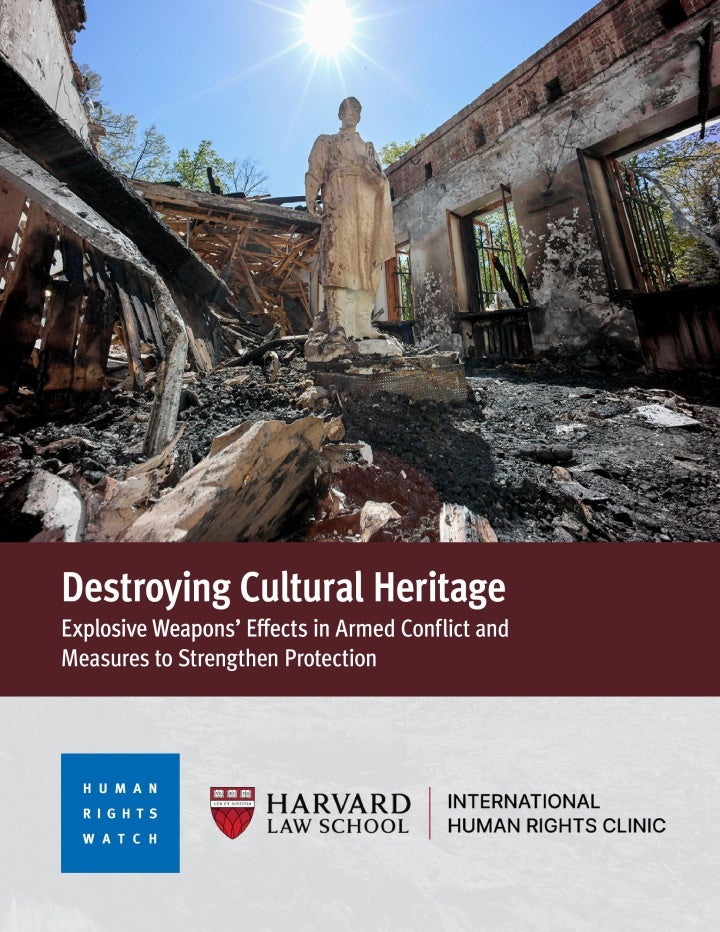Destroying Cultural Heritage
Explosive Weapons’ Effects in Armed Conflict and Measures to Strengthen Protection


Explosive Weapons’ Effects in Armed Conflict and Measures to Strengthen Protection

